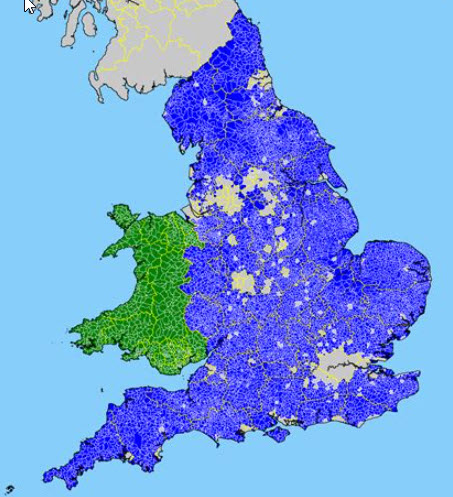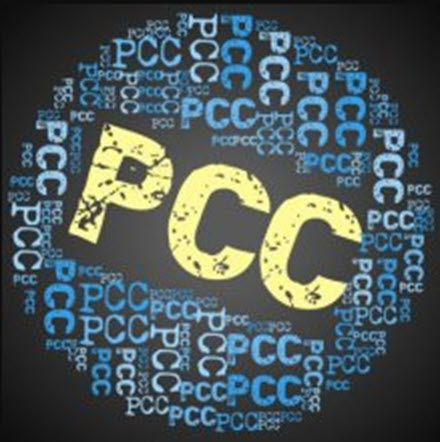-
07542 928169

The Role of the Parish Council
As the first level ‘grass roots’ of democracy within the United Kingdom, Parish, Town & Community Councils’ primary role is to represent the interests of the whole community that they represent. These local councils provide focus for the community to understand concerns and projects, and endeavour to solve them at a local level.
There are around 80,000 councillors serving on approximately 8,700 local councils in England who represent over 16 million people (approximately 30% of the population) as their initial level of government, and together they are responsible for a collective budget nearing £500m annually, an average of around £20 per parishioner.
Typically, a parish councils activities includes helping parishioners with local issues, often by taking up their problems with the County Council for example, commenting on local planning applications, managing playing fields, recreation grounds, allotments, greens and the civic amenities, working pro-actively on local issues such as development, flooding, traffic and recreation.
The Parish Council is an elected corporate body, a legal entity, separate from that of its members, and is accountable to the local community.
Its decisions are the responsibility of the whole body and are made collectively and by majority. The Parish Council has been granted powers by Parliament including the authority to raise money through taxation - the precept, and a range of powers to spend public money.
A Parish Council is an elected body with elections taking place every 4 years. Other levels, known as principal councils or authorities, have many legal duties to deliver services such as education, housing, town and country planning, transport, environmental health and social services. Parish Councils have the legal power to take action, but they have very few duties and greater freedom to decide what action takes place. They can play an essential part in representing the interests of the communities they serve and improving the quality of life and the local environment.
The Parish Council is an employer. The Parish Clerk works for and with the Council to act upon its decisions.
The Role of the Parish Councillor
The main role of a Parish Councillor is to represent the diverse views and interests of all residents within the Parish and to listen to and comprehend, the views and needs of different groups within that community, for example the interest of both younger and elderly sections of the community. As a Councillor there is a responsibility to keep up to data and well-informed, specifically about diverse local views. Councillors cannot assume that they represent the interests of electors without actually consulting them.
Parish Councillors are elected representatives, not volunteers or employees, and serve 4-year terms, unless co-opted or elected in a bye-election when they serve until the next election. They must apply the law and comply with the Model Code of Conduct.
Councillors contribute to the work of the Council by suggesting ideas, influencing policy, engaging in constructive debate and by responding to the needs and views of the community. Councillors comment on proposals to ensure the best outcome and vote to enable the Council to make decisions.
Individual Parish Councillors cannot make decisions on behalf of the Council, but they can actively lead and engage with local projects. Parish Councillors should have no powers outside of the Councils elected body.
Diversity is encouraged, therefore councillors from varied backgrounds will better represent the community as a whole and will have different interests, skills, attitudes, and experiences. Some Councillors work with ideas while others are more practical, the Parish Council needs a wide range of skills to work as a team.
Occasionally there will be conflicts of interest requiring sensitive judgement, and the need to take challenging decisions in a transparent, honest and reasoned way. Councillors are required to act in an ethical manner and to openly disclose interests when and wherever necessary.
Key Responsibilities:
- As part of the Parish Council, Councillors may have responsibility for running local services such as public open spaces, play areas, village halls, community car schemes to name a few.
- Deciding how much to raise through the precept to deliver the Council’s services.
- Influencing and shaping the long-term development policy for the Parish, and as part of the planning process, commenting on planning applications in the Parish.
- Improving the quality of life and the environment in the local area.
- Working to identify issues which are important to the lives of the residents they represent.
- Working to bring about improvements through local projects, lobbying other service providers and working in partnership with other Parishes, local authorities and agencies.
- A Councillor agrees to attend all meetings (reasonably possible) that he or she is summoned to be present.
- Councillors together as a team are responsible for the financial decisions made and implemented.
A Councillors main task is to bring local issues to
the attention of the Council, participate in debate and help the Council to
make collective decisions on behalf of the local community.


The Parochial Church Council (PCC)
The Parish Council should not be confused with the Parochial Church Council (PCC), which is an executive committee of a Church of England parish. It consists of clergy, churchwardens of the parish along with representatives of the congregation.
Prior to the Local Government Act 0f 1894, functions of the PC and PCC were held by Vestry Committees which used to oversee both religious and secular matters within parishes. These committees were not born from legislative act, but rather evolved independently in an unregulated ad-hoc fashion from parish to parish, based on local requirements. The Act reformed local government, separating the secular and ecclesiastical duties when a system of elected rural parish councils or urban district councils were introduced.
PCC’s are corporate charitable bodies.
The PCC is responsible for the financial affairs of the church, and the care and maintenance of the church fabric and its contents and the maintenance of its assets, such as churches and church halls etc.